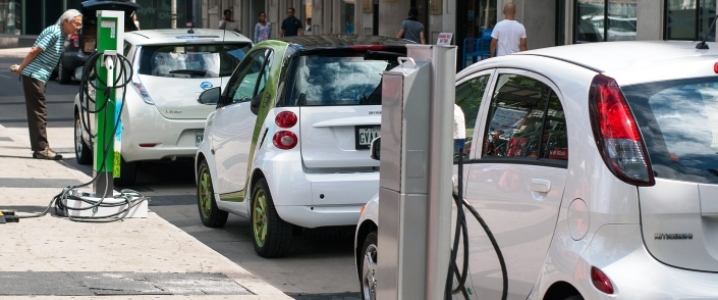While Europe has long been at the forefront of the automotive industry, it will most likely be overtaken in the very near future by another economic superpower--China. The world’s second-biggest economy is already well-established as the global leader for the batteries that power electric vehicles, which are seen as a vital component to the future of the automotive industry. In light of this dynamic, Europe will become increasingly dependent on China as an integral part of their automotive sector, an industry with millions of employees across the continent.
The European market should start contending with the likely outcome that European car production will soon be making a mass move to China. This will have a major impact on the region that has long counted companies like Volkswagen, BMW, Mercedes-Benz and Renault among its economic strongholds.
China produces about two thirds of the whole world’s supply of lithium ion batteries, the most common battery type used in electric vehicles. Furthermore, these highly valuable batteries make up a staggering 40 percent of the cars’ value. As it stands, Europe is far from being able to compete with China when it comes to the production of lithium ion batteries. In fact, currently the entire continent is estimated to hold just 1 percent of the market.
Moving the production of electric cars to China is a no-brainer for European car companies. Not only is China the site where many of the essential parts are manufactured, allowing car companies to avoid the heft tariffs currently imposed on electric vehicles, it’s also home to what is by far the world’s biggest market for electric cars. China already accounts for about half of electric vehicle sales worldwide, and these numbers will only continue to grow. Last year the Chinese government went so far as to release a “road map” that shows a plan to replace at least one-fifth of new car sales with alternative fuel vehicles by 2025. These are all facts that the international car industry has not let go unnoticed--investments in Chinese-made electric cars are through the roof.
Last year Volkswagen announced that it would be pouring a whopping $12 billion into the production of electric vehicles in China. Meanwhile, electric car wunderkind Tesla is busy building a Shanghai factory that will have a production capacity of half a million electric cars per year. To compare, currently in the whole of the United States only about 100,000 electric cars are produced annually.
Related: Trade War Puts The Brakes On U.S. LNG Dominance
Even European battery companies are investing overseas instead of building the industry locally. Take the Dutch lithium ion battery maker Lithium Werks, which already has two plants in China, and has now announced plans to build an additional factory outside Shanghai to the tune of €1.6 billion ($1.8 billion). The massive factory will, when up and running at full capacity, be able to manufacture enough batteries to power 160,000 cars a year. The company cited better infrastructure and easier access to building permits as their primary reasons for building in China--in Europe a similar venture would simply be met with too much red tape.
Taking cues from China, the European Union (EU) is now trying to make the continent a more attractive place for both makers and buyers of electric vehicles. This year the European Commission released an action plan that aims to foster heavier investing in battery technologies on European soil by offering more funding, among other incentives. The plan underlines the ever-increasing risk that Europe will get edged out of supply change and losing influence over environmental standards if they don’t make more of a presence in the battery industry.
That being said, the European Commission’s initiative may very well may be too little, too late. Action plan or no, Europe would have to work miracles to catch up with China. 1 percent of the lithium ion battery industry versus two thirds is far beyond your standard David and Goliath tale, and miracles are a bit harder to come by in the modern world.
By Haley Zaremba for Oilprice.com
More Top Reads From Oilprice.com:
- This High Profile Merger Could Impact EU Gas Markets
- What’s Behind The Continued Selloff In Oil?
- U.S. Oil To Significantly Outperform This Year


















